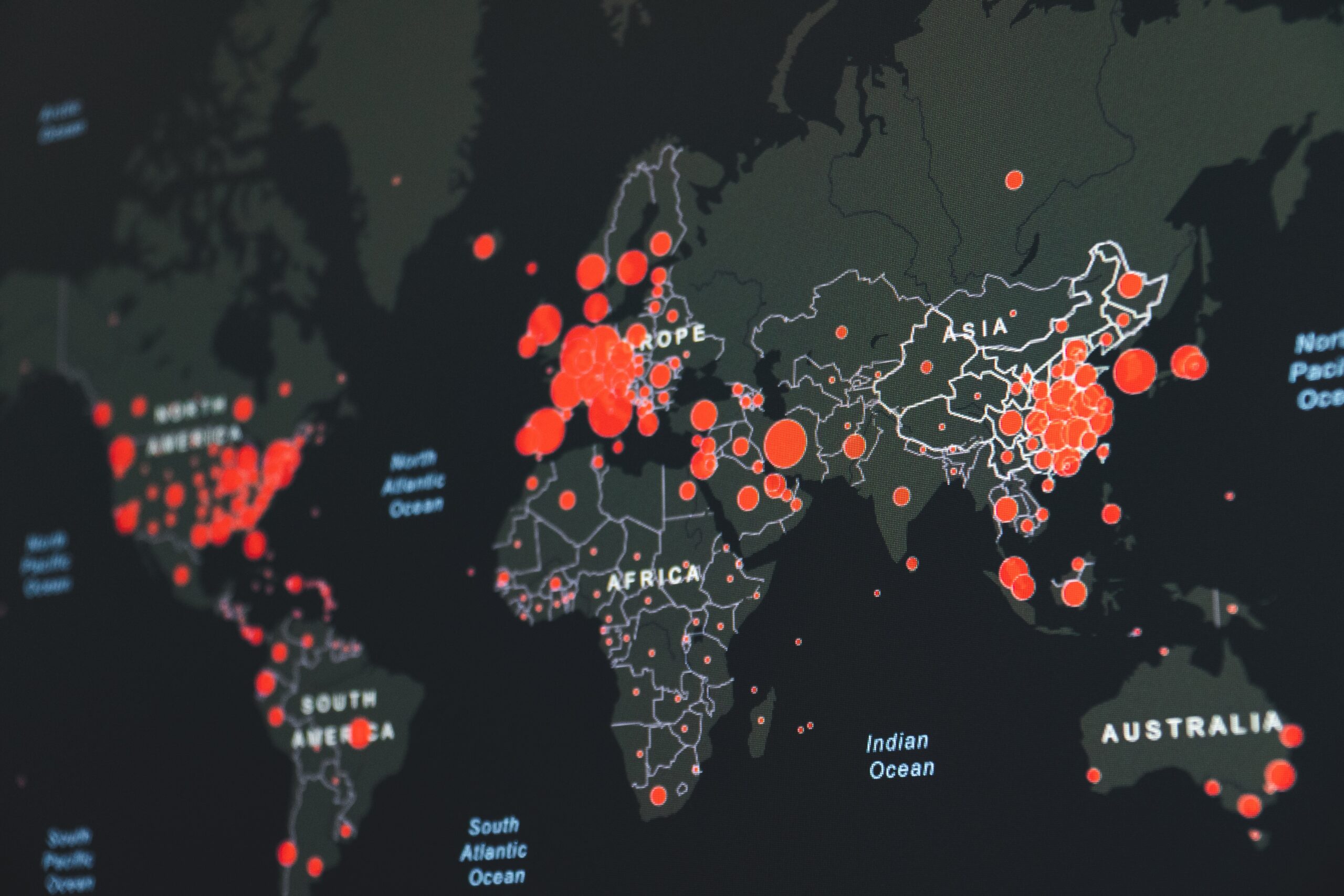The Middle East, a region synonymous with its illustrious history, multifaceted cultures and breathtaking natural beauty, attracts travelers with the promise of unforgettable experiences. While this charming part of the world holds incredible rewards for explorers, thorough preparation is key to unlocking its true potential. In the following article, we will provide you with essential information and tips to equip you for a trip that not only ensures your safety, but also maximizes your enjoyment, allowing you to create indelible memories in the captivating tapestry of Middle Eastern allure.
Research Visa Requirements
Respecting local customs and traditions is paramount when traveling in the Middle East. One crucial aspect is dressing modestly, particularly in regions with conservative values, for both men and women, covering shoulders, knees, and cleavage is advisable to show respect and avoid unwanted attention. Moreover, when entering someone’s home, it’s customary to remove your shoes as a sign of courtesy and cleanliness. Embracing these simple gestures demonstrates your willingness to embrace local ways of life. Additionally, learning a few basic Arabic phrases, such as greetings and polite expressions, not only showcases respect but also fosters connections with locals, often leading to more enriching and authentic cultural experiences during your journey.
Research Visa Requirements
Researching visa requirements is a crucial step for a smooth and hassle-free journey in the Middle East. Each country in the region may have its own visa policies and requirements, so it’s essential to check these well in advance of your travel date. Some countries offer visa-free entry or visas on arrival for certain passport holders, while others require a pre-approved visa that must be obtained before your trip.
Furthermore, it’s imperative to ensure your passport has at least six months’ validity beyond your planned departure date. Many Middle Eastern countries have this requirement to prevent travelers from entering with soon-to-expire passports. Failing to meet these passport and visa requirements can result in denied entry or significant travel disruptions, so thorough preparation is essential to ensure a seamless and enjoyable visit to this diverse and captivating region.
Stay Hydrated
Staying hydrated is essential when exploring the Middle East, where scorching temperatures and arid climates are common. To ensure a comfortable and safe journey, it is advisable to carry a refillable water bottle with you at all times. The key is to drink plenty of fluids throughout the day, even if you’re not thirsty, as dehydration can set in quickly in the heat. Consider sipping on water, electrolyte-rich drinks, or herbal teas to stay well hydrated. This simple but essential practice will help you maintain your energy levels, stay healthy and fully enjoy the incredible sights and experiences the Middle East has to offer.
Travel Insurance
Investing in comprehensive travel insurance is a fundamental step in ensuring a worry-free and safe trip to the Middle East. The diverse landscapes and cultures of the region offer many adventures, but unexpected situations can arise. To mitigate potential risks, opt for travel insurance that covers a range of scenarios, including health emergencies such as illness or accidents, ensuring you have access to medical care wherever you are.
In addition, comprehensive travel insurance should protect against unforeseen trip cancellations or interruptions by reimbursing you for non-refundable expenses such as flights and accommodation. Furthermore, it should cover lost or stolen goods, providing financial help and peace of mind if luggage or valuables are compromised.
By choosing the right travel insurance, you’ll embark on your Middle East adventure with confidence, knowing you’re prepared for the unexpected and can focus on creating cherished memories.
Local Currency and ATMs
Managing your finances wisely is essential when traveling to the Middle East. To ensure you have access to funds, it is advisable to exchange local currency before your trip, especially for initial expenses on arrival. Local ATMs are widely available throughout the region and offer convenient currency exchange options.
Using ATMs allows you to withdraw cash in local currency at competitive exchange rates. However, it is prudent to carry a small amount of cash in major international currencies such as US dollars or euros for places that do not accept cards, such as small local markets or remote areas. This ensures that you are prepared for any expense situation during your trip.
Safety First
Prioritizing safety is paramount while traveling in the Middle East. Begin by staying well-informed about the current political situation in the region and any travel advisories issued by your government. This information can help you make informed decisions about your itinerary and destinations.
Additionally, be vigilant against potential scams, as tourist areas can sometimes attract opportunistic individuals. Common scams may include overcharging for goods or services or creating distractions to facilitate theft. It’s advisable to research common scams specific to your destination and be cautious when dealing with unfamiliar individuals.
Moreover, keeping your belongings secure is essential. Use hotel safes for valuables, carry a crossbody bag or money belt to deter pickpockets, and be cautious with personal information when using public Wi-Fi. By staying vigilant and informed, you can navigate the Middle East with confidence and enjoy a safe and memorable journey.
Respect Religious Sites
Respecting religious sites is not only a matter of courtesy but also a way to deeply engage with the cultural and spiritual heritage of the Middle East. When entering mosques, churches, synagogues, or other religious places, it’s imperative to dress modestly and conservatively. For men and women, this typically means covering shoulders, knees, and cleavage. Many religious sites may also require women to cover their hair with a scarf.
In addition to appropriate clothing, it’s essential to follow any specific rules and guidelines provided by the religious authorities or site administrators. These rules may include removing your shoes before entering, refraining from photography, and maintaining respectful silence. By adhering to these practices, you not only show respect for the local customs and beliefs but also ensure a harmonious and meaningful visit to these sacred places.
Try the Local Cuisine
Exploring the culinary delights of the Middle East is an essential part of immersing yourself in the local culture and creating a memorable travel experience. The cuisine of the region is a tapestry of flavors, reflecting centuries of tradition and influences from various cultures.
Don’t miss the opportunity to enjoy local dishes and street food. Middle Eastern cuisine offers a wide range of delights, from the aromatic spices of Lebanese shawarma to the rich flavors of Egyptian koshari. Tasting these dishes in bustling markets or family restaurants can be a gastronomic adventure in itself.
While indulging in Middle Eastern cuisine is highly encouraged, it is essential to be cautious with your tap water. To avoid stomach problems, opt for bottled water when dining or drinking, making sure it’s sealed to guarantee its purity. This simple precaution ensures that you can enjoy the culinary treasures of the Middle East without unwanted interruptions to your trip.
Negotiate Prices
Engaging in the art of bargaining is a common practice in Middle Eastern markets known as souks. While some travelers may initially find haggling intimidating, it’s an integral part of the local shopping experience and can lead to fair deals and memorable interactions.
Politeness is key when negotiating prices. Start by showing a genuine interest in the item and engage in a friendly conversation with the seller. It is common to offer a lower price than the initial quote and gradually work your way up to a mutually agreeable figure. Remember to maintain a respectful and friendly demeanor throughout the process.
Bargaining not only allows you to get unique souvenirs at reasonable prices, but also fosters a connection with local artisans and vendors, providing insights into the vibrant culture of the Middle East. So, embrace the tradition of bargains and make the most of your shopping experiences in these lively markets.
Learn About Local Etiquette
Understanding and following local etiquette is essential when traveling in the Middle East, as it facilitates positive interactions and demonstrates cultural sensitivity.
In many Middle Eastern cultures, a friendly handshake is a common form of greeting. However, it is essential to use the right hand for this gesture, as the left hand is traditionally considered impolite for such interactions.
When you are invited to someone’s home, it is customary to remove your shoes before entering. This practice is not only a sign of respect, but also helps to maintain cleanliness in the household.
During meals, always use your right hand to eat, as the left hand is usually associated with personal hygiene. This simple but vital knowledge of local etiquette will enhance your cultural immersion and create harmonious connections with the people you meet during your travels in the Middle East.
Stay Connected
Staying connected while traveling in the Middle East is crucial for both convenience and safety. To maintain communication with family, access maps, translation apps, and stay informed, consider purchasing a local SIM card upon arrival or ensure that your existing phone plan includes international data coverage.
A local SIM card allows you to have a local phone number and access to affordable data and calling rates. It’s an excellent way to stay connected without incurring exorbitant roaming charges. Alternatively, if your current phone plan offers international data, ensure it’s activated and compatible with the countries you plan to visit. Being connected ensures you can navigate unfamiliar terrain, stay in touch with loved ones, and make the most of your Middle East adventure with ease.
Plan Your Itinerary
Careful itinerary planning is a key to a successful and enriching journey in the Middle East. Before embarking on your adventure, conduct thorough research about your destination and create a well-thought-out itinerary.
Consider local holidays and cultural events as they can significantly impact your travel experience. Festivals, religious holidays, and special occasions may lead to certain attractions or services being closed or operating on different schedules.
By incorporating awareness of these events into your itinerary, you can either join in the celebrations to gain unique cultural insights or plan alternative activities during quieter periods. This level of preparation not only enhances your understanding of local customs but also ensures you make the most of your time exploring the diverse and captivating Middle East.
Conclusion
Traveling in the Middle East offers an opportunity to explore a region rich in history, culture, and natural beauty. By following these essential tips, you can ensure a safe and enjoyable journey, make meaningful connections with locals, and create lasting memories in this captivating part of the world. Embrace the adventure, respect local customs, and savor the unique experiences the Middle East has to offer.





